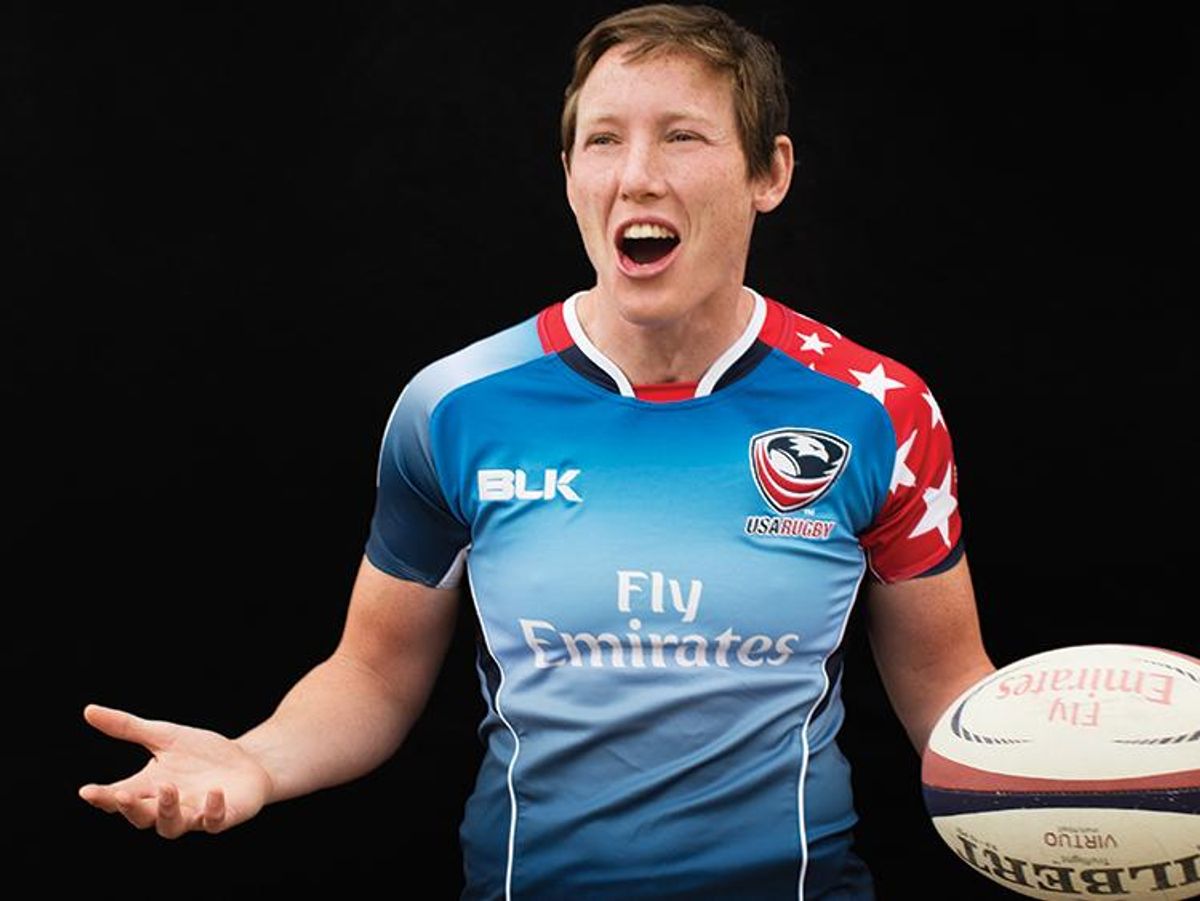Sports
Need to Know: Queer Olympian Hopeful Jillion Potter

“I just think rugby globally is a very accepting sport because when you’re starting out, everyone plays."
July 26 2016 1:50 PM EST
May 26 2023 1:27 PM EST
By continuing to use our site, you agree to our Private Policy and Terms of Use.

“I just think rugby globally is a very accepting sport because when you’re starting out, everyone plays."
Photography by Bil Zelman.
For out Olympian rugby player Jillion Potter, competing at the highest level is about more than just winning medals. The 30-year-old Texas-born athlete has come a long way from the homophobia she witnessed firsthand in high school. "One of my friends got cut from the basketball team because she was gay. And the coach made a huge display of it, saying how disgusting it was, how we should be embarrassed for her... I thought, OK, this is not a safe space to think those thoughts."
Potter never had to make a big show of coming out to her family. "I was experimenting in college, and had a girlfriend over at my house, and my parents walked in on us. I thought, Well, I guess that's how I'm coming out." Her sexual orientation hasn't been an issue for her teammates, either. "I just think rugby globally is a very accepting sport because when you're starting out, everyone plays. No matter your weight, height...anyone has a place, and it really becomes a safe place to be yourself."
Related | Meet the Warriors: Queer Olympic Hopefuls On the Path to Glory
Now bringing visibility to the lesbian community on a worldwide scale, she acknowledges the huge responsibility given to her, and she doesn't take it lightly. "It transforms society's views when young boys and girls see gay athletes with their partners, and they ask their parents, 'Oh, that's OK?' It becomes commonplace, something people don't have to be afraid of."
Potter hopes to continue to erase this sort of fear through her role in this summer's Olympics. "The innocent people who died in Orlando aren't just representative of the LGBT community--each victim represents our rights to life, liberty, and happiness," she says. "This culture of intolerance jeopardizes the liberties of every person, and it's our responsibility as a society to change. We can do more."
Like what you see here? Subscribe and be the first to receive the latest issue of Out. Subscribe to print here and receive a complimentary digital subscription.